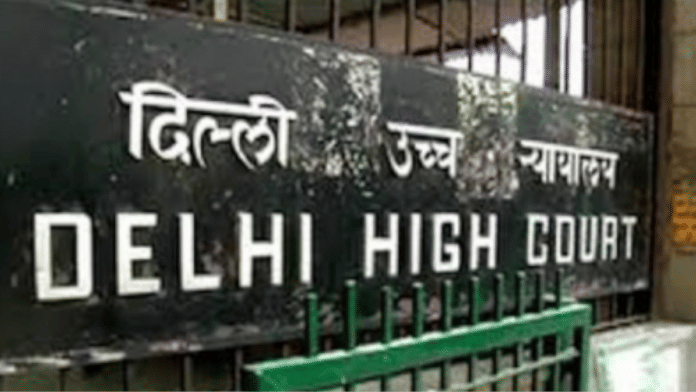New Delhi: The Delhi High Court directed the Delhi government to file an affidavit indicating the steps taken to enhance and upgrade the internet connectivity in trial courts to improve the quality of video conference hearings, which began as a social distancing measure to curb the spread of Covid-19.
On 5 June, a bench led by Justice Hima Kohli issued the order after it was told that despite repeated letters to the state authorities to approve and sanction expenditure for upgradation of existing lines, no steps have been taken in that direction.
The high court was informed that the virtual courts in the district judiciary were functioning within limited internet bandwidth.
Apart from the affidavit, Justice Kohli’s bench also sought to know about the measures being taken by the state authorities to digitise court records.
The direction came while the bench was hearing a matrimonial dispute in which the husband had requested for a direction to the trial court to hold digital proceedings in his divorce case. He implored the court to allow recording of statements of contesting parties through video-conferencing. The wife, however, opposed the suggestion.
Also read: Modi govt set to appoint J&K separatist’s son-in-law as high court judge
Video conference necessary for justice amid Covid
The Delhi High Court is the third high court to highlight the urgent need for adequate bandwidth and facilities to hold digital hearings of cases on account of the pandemic.
In a judgment delivered last week, Jammu and Kashmir High Court held that “e-connectivity” is necessary for access to justice amid the Covid-19 crisis.
Earlier, in May last week, the Allahabad High Court also came down heavily on the Yogi Adityanath-led government in Uttar Pradesh for not providing proper internet facilities to government lawyers appearing in video conference proceedings.
During the hearing before Justice Kohli’s bench, Ritesh Singh, registrar of Delhi High Court, said that matters are being conducted in district courts of the national capital via video conferencing but within the limited bandwidth provided by the government.
He pointed out that no improvement has taken place despite repeated reminders by the District and Session Judge (Headquarters), Tis Hazari and the Registrar General of the Delhi High Court to the Law and Judicial Secretary of the Delhi Government, for administrative approval and sanction of expenditure for upgradation of the existing internet lines from 34 Mbps to 1 Gbps in each district court complex.
The most recent reminder was issued to the secretary by the high court on 18 May, wherein it was highlighted again that video conferencing “is an urgent requirement for conducting court proceedings” under the current circumstances and that necessary sanctions be “accorded expeditiously”.
Also read: Supreme Court could give Centre, states 15 days to send all migrants back home
Digitisation of court records
The court also sought status on the two-and-a-half-year-old request made to the Delhi government in November 2018, for sanction to digitise the records in the district courts so that space can be vacated and put to use for other purposes by getting rid of voluminous files.
“The reason for failing to take actions for the past two and a half years on such a critical aspect shall also be explained. The said affidavit shall be filed by a senior officer of the Delhi Government on or before 12 June,” the judge said.






